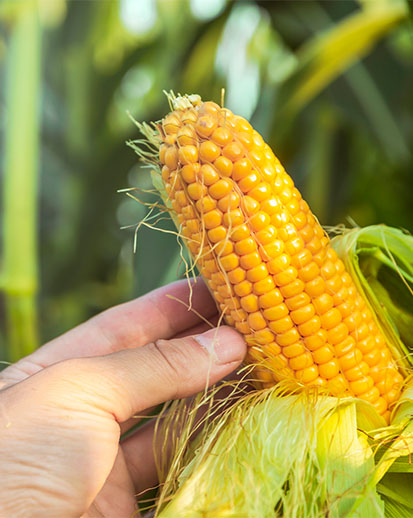Opportunities to make more responsible choices
Plant-based meat alternatives have transformed grocery store shelves and restaurant menus alike with a broad range of meatless options that appeal to consumer demand for healthy and sustainable diets. Now, plant-based fish alternatives are catching this wave.
There is a growing demand for plant-based alternatives alongside traditional meat, fish and dairy products, as consumers search for foods that deliver an authentic eating experience without compromising on taste and texture. Whether for personal, health or sustainability reasons, or from plain curiosity, more and more people are adding plant-based options to their food choices and are adopting flexitarian, vegetarian, or vegan diets. At the same time, the importance of a quality nutritional profile is attracting increasing recognition.
Today’s eco-conscious consumers are increasingly seeking opportunities to make responsible choices that help reduce the impact on the planet’s limited resources. Plant-based fish alternatives are emerging as an appealing option for the rising number of individuals adopting flexitarian, vegetarian and vegan lifestyles. Plant-based seafood is currently a small fraction of the overall plant-based meat and seafood category, accounting for less than 1% of sales in the US. This market is developing rapidly, however, and its potential presents a compelling prospect to manufacturers that have the capability to formulate authentic, tasty and enticing plant-based fish-alternative products.
Consumers looking for plant-based alternatives to traditional fish products are concerned about the sustainability of the planet, and especially the ecosystems of the ocean. To ensure that plant-based alternatives will resonate with eco-conscious consumers, it is essential to offer comparable nutritional value while reproducing the nuanced flavors and textures associated with fish and shellfish.
Delivering taste, texture and nutritional value
A 2020 report by the United Nations Food and Agriculture Organization (FAO) highlighted the fact that annual global per capita fish consumption had more than doubled between 1961 and 2017. Meanwhile, in the past 35 years alone, the world’s population has grown by more than 50%, according to FAO. Research shows that 84% of people in the UK — to give just one country as an example — say that being environmentally friendly is important to them, and concerns over diminishing fish resources are growing.
Consumers interested in plant-based alternatives are unwilling to compromise on sensory experience. Delivering attractive taste, texture and mouthfeel is therefore essential. Manufacturers, however, face a serious challenge in trying to meet the taste and sensory properties of traditional fish products. Most commercially available fish flavors are produced by processing parts of fish or shellfish. These products consequently fail to meet vegetarian criteria and are not fully sustainable (nor are they halal or kosher). A parallel consideration is the challenge of ensuring nutritional value in terms of omega-3 content as well as vitamins and other micronutrients. Taste, texture and nutritional value all have to be delivered in a single package.
Our solutions
In 2021, we launched Maxavor® Fish YE, a first-ever vegan, natural and 100% allergen-free flavor solution. Maxavor® Fish YE has been designed to overcome common formulation challenges in the development of premium plant-based fish alternatives, such as vegetarian fish nuggets and vegan fish sauce. It delivers an authentic fish taste, texture and mouthfeel. It can also help to amplify flavor in actual fish-based products.
Maxavor® Fish YE is available in two profiles, depending on the application: one for rich and oily, dark-fleshed fish (e.g., plant-based canned tuna) and the other for white-fleshed fish (e.g., plant-based fish cakes). Maxavor® Fish YE won a prestigious Food Ingredients Europe Innovation Award in November 2021, coming top of the ‘Plant-Based Innovation’ category.
life’s®OMEGA from DSM is used in plant-based and vegan food & beverage products ranging from margarine to plant-based fish alternatives, as well as in dietary supplements. life’s®OMEGA is the only algal (plant-based) omega-3 DHA and EPA alternative with significant levels of EPA and DHA. It delivers the features of marine-based EPA and DHA but with the benefits of sustainable plant-based sourcing. life’sDHA® is already finding applications in meat and fish alternatives in North America (EU approval for its use in meat and fish alternatives is pending at time of publication of this Report).
Do you know?
The global plant-based alternatives market was valued at USD 29.4 billion in 2020. What value in USD is it projected to attain in the next decade, according to a report published by Bloomberg in 2021?
Our impact
Following its launch in March 2021, Maxavor® Fish YE is now being used in a number of vegan canned tuna products across the US, the UK, the Netherlands and Asia. In South Africa, the Maxavor® Fish YE solution is being used in fishcakes, while in New Zealand, Russia and Romania, it is being used to produce vegan oyster sauce.
In Latin America, another of our products – life’sDHA® – has been successfully used by one of the region’s leading producers of plant-based products to improve the nutritional value of its new vegan tuna alternative.
Stronger together
Reading Scientific Services Ltd (RSSL), an independent applications laboratory, has been exploring the potential of Maxavor® Fish YE. RSSL found it to be invaluable in terms of achieving an authentic flavor profile and helping to mask any off notes from the base ingredients.

“For an upcoming tuna alternative, we saw a noticeable improvement in the flavor profile when we included Maxavor® Fish YE in the formulation.”Carole Bingley
How we support the SDGs
12
12 – Ensure sustainable consumption and production patterns
The development of our portfolio of plant-based fish alternatives supports the attainment of UN Sustainable Development Goals 12 and 14 by enabling the development of more sustainable consumer products that help protect the planet’s limited resources. These products also support our Food System Commitment to reach 150 million people with nutritious, sustainable, plant-based protein foods by 2030.
14
14 – Conserve and sustainably use the oceans, seas and marine resources for sustainable development
The development of our portfolio of plant-based fish alternatives supports the attainment of UN Sustainable Development Goals 12 and 14 by enabling the development of more sustainable consumer products that help protect the planet’s limited resources. These products also support our Food System Commitment to reach 150 million people with nutritious, sustainable, plant-based protein foods by 2030.





